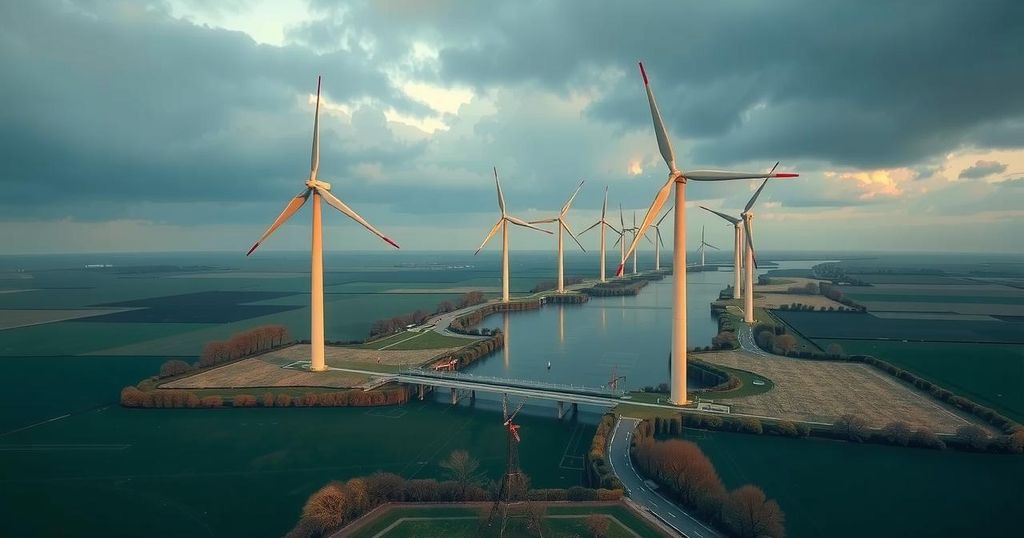Impact of Weather and Wind Energy on Dutch and British Gas Prices
Increasing temperatures and enhanced wind energy forecasts have led to a significant drop in gas prices in the Dutch and British markets. The Dutch TTF hub’s front-month contract fell to €39.40 per megawatt-hour, and British contracts decreased to 94.90 pence per therm. Despite a projected increase in demand during the workweek, geopolitical tensions could add volatility to these market conditions.
Recent trends in the energy markets have indicated a noteworthy decline in gas prices across both Dutch and British markets, primarily driven by rising temperatures and enhanced wind power generation. These developments provide some much-needed relief within an increasingly strained market environment. With temperatures in Europe surpassing average levels, a corresponding decrease in gas demand has become evident, which in turn has exerted downward pressure on prices at critical trading hubs. The latest data reveals that the benchmark front-month contract at the Dutch Title Transfer Facility (TTF) has decreased to €39.40 per megawatt-hour, while British weekend contracts are set at 94.90 pence per therm. Despite this price reduction, a modest increase in gas consumption is projected as power plants gearing up for the upcoming workweek are anticipated to demand an additional 88 GWh/d of gas. However, overall Norwegian gas exports have seen a slight decline due to extended maintenance activities. Furthermore, the stable pricing differential between Asian and European markets has discouraged US liquefied natural gas (LNG) exporters from capitalizing on opportunities abroad. Nevertheless, the backdrop of geopolitical uncertainty, particularly involving tensions in the Middle East, continues to loom over the energy sector, injecting additional volatility into market operations and pricing structures. This scenario highlights the complex dynamics affecting energy supplies and prices, as conflicts can induce rapid alterations in market stability.
The context of this analysis lies within the broader landscape of European energy markets, which have been increasingly influenced by a mixture of climatic factors and geopolitical tensions. The combination of milder weather conditions and higher expectations for wind power generation represents a significant shift in energy demand dynamics, leading to notable effects on gas pricing. Furthermore, understanding the interconnectedness of European energy demands and global market factors, including geopolitical conflicts, is essential for comprehending current trends in gas pricing and export strategies.
In summary, the recent decrease in gas prices in the Dutch and British markets can be attributed to rising temperatures and increased wind energy output, collectively resulting in reduced demand. Although there are anticipated increases in consumption during the workweek, the backdrop of geopolitical instability—particularly in the Middle East—remains a concerning factor that may further influence market conditions. Thus, stakeholders within the energy sector should remain vigilant regarding these developments, as they exemplify the delicate balance between renewable energy potential and traditional gas demands all while navigating geopolitical uncertainties.
Original Source: finimize.com




Post Comment